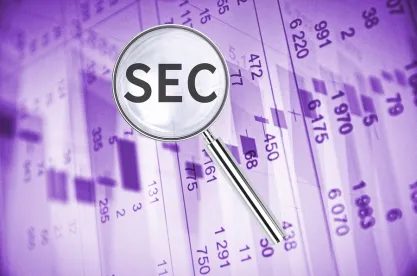On June 22, 2020, the Court issued its 8-1 opinion in Liu et al. v. Securities and Exchange Commission, No. 18-1501, 591 U.S. ____, 2020 U.S. LEXIS 3374 (2020) (Sotomayor, J.), holding that a disgorgement award is “equitable relief” permissible under 15 U. S. C. §78u(d)(5), and, as such, is relief that the Securities and Exchange Commission (“SEC”) may properly seek as “appropriate or necessary for the benefit of investors.”[i]
In making clear that the federal courts possess authority to order disgorgement as a remedy in SEC enforcement proceedings, the Liu decision squarely responds to one of the questions the Court left open in 2017 in Kokesh v. Securities and Exchange Commission, 581 U.S. ____, 137 S. Ct. 1635, 1644 (2017). But the Court still has not ruled on exactly what monies the SEC can and cannot disgorge – and in some ways actively muddies the waters with the Liu decision.
The Kokesh decision held that disgorgement as employed by the SEC in a civil action brought in federal court (D. New Mexico) was a “penalty” pursuant to 28 U. S. C. §2462, and was therefore limited by a five year statute of limitations.[ii] The majority opinion (also penned by Justice Sotomayor) categorized disgorgement as a penalty for a number of reasons. First, SEC disgorgement is the consequence of a violation against the United States and not particular individual(s).[iii] Second, the remedy is “inherently punitive” and not “compensatory” because (i) it is primarily intended to deter future securities violations and not to provide restitution; (ii) in a number of scenarios the amount disgorged could be disproportionate to the actual profits obtained by an offender, or could be disgorged from a defendant that had not actually received any profit; and (iii) the recovered monies are often not provided to the victims directly, and instead disgorged to the district courts or SEC Treasury.[iv]
In a footnote, the Kokesh opinion had explicitly left open two key questions: (i) “whether courts possess authority to order disgorgement in SEC enforcement proceedings;” and (ii) “whether courts have properly applied disgorgement principles.”[v] Both questions were raised in the Liu case, but only one was answered.
In Liu, husband and wife petitioners Charles Liu and Xin Wang had convinced foreign nationals to invest nearly $27 million in the construction of a cancer-treatment center through the EB-5 Immigrant Investor Program. Liu was the primary contact and officer, but Wang was also involved in fundraising and orchestration. The SEC alleged that the couple misappropriated the funds in violation of the fund’s private offering memorandum (spending upwards of $20 million on marketing and other prohibited costs as well as diverting funds into Wang’s privately held accounts and businesses). In SEC v. Liu, 262 F. Supp. 3d 957 (C.D. Cal. 2017), the District Court agreed, granting an injunction barring their further participation in the EB-5 Program, and ordering significant civil monetary penalties as well as disgorgement equal to the full amount raised from investors (less what remained in corporate accounts).[vi] The disgorgement amount was not otherwise adjusted and Liu and Wang were held jointly and severally liable for the full monetary amount.[vii]
Liu and Wang appealed, arguing that the District Court did not have the power to enter a disgorgement award, and even if it did, the disgorgement award was improper under Kokesh because it did not return funds to victims, did not deduct reasonable business expenses, and imposed joint-and-several liability. The Ninth Circuit affirmed the lower court’s decision, upheld the disgorgement award, and held that “the proper amount of disgorgement in a scheme such as this one is the entire amount raised less the money paid back to the investors.”[viii]
On June 20, 2020, the Supreme Court held in Liu that disgorgement is an equitable remedy under 15 U. S. C. §78(u)(5) because this type of relief falls within a long line of “equity jurisprudence” which allowed courts to “strip wrongdoers of their ill-gotten gains.”[ix] As such, it is relief that the SEC may properly seek as “appropriate or necessary for the benefit of investors” pursuant to the statute. The Supreme Court vacated and remanded to the lower court in order to determine a proper disgorgement order in line with equitable principles in the decision.[x]
The Court specifically declined to address the specific disgorgement issues raised by petitioners Liu and Wang and refused to provide a fact-specific, equitable disgorgement order, but did attempt to provide guidance for lower courts to do so. Justice Sotomayor noted that the disgorgement order in Kokesh “seemed to exceed the bounds of traditional equitable principles” – though that was not the stated grounds for the Kokesh ruling at all – but suggested that the SEC could “conform future requests” to be properly construed as equitable relief.[xi] The Court stated that “a disgorgement award that does not exceed a wrongdoer’s net profits and is awarded for victims” is permissible.[xii] The Court also acknowledged joint and several liability was prohibited in other equitable contexts and remanded for a determination as to whether there was sufficient evidence of concerted wrongdoing.[xiii]
By failing to provide an approved disgorgement order on the facts of Liu or Kokesh, the Supreme Court has left open significant legal questions that will ensure ongoing SEC enforcement litigation in the coming months and years:
-
First, and perhaps most importantly, the Liu decision potentially re-opens the statute of limitation question initially settled in Kokesh, and it is now unclear if the 5 year statute of limitation applies to all SEC disgorgement remedies. The Kokesh holding was grounded, at least in part, on the fact that disgorgement as it had been employed by the SEC was not limited to actual profits and that the monies did not go to victims. Going forward, the SEC will almost certainly argue that if the disgorgement appropriately adjusts for business expenses and is distributed to victims under the Liu guidance, the timing limitation of Kokesh does not apply. It will be up to the lower courts to parse the overlapping meanings of the two opinions.
-
Second, the Court refused to address whether the SEC’s ongoing policy of remitting disgorged funds to the Treasury (as opposed to disbursement to specific investors or victims) can continue under certain circumstances. The Court stated that the remedy “generally requires the SEC to return a defendant’s gains to wronged investors for their benefit,” but expressly left open the fact that this might be infeasible in certain circumstances and did not address all SEC violations, such as insider trading, for which there may not be specific “wronged investors” to remit funds to.
-
Third, litigation will also ensue from the SEC’s attempts to categorize and deduct “business expenses” and its unilateral determination of which “profits” were gained from any particular violation, especially where multiple defendants are involved in varying capacities.
-
Finally, as Justice Thomas also notes in his dissent, it is unclear if these new “guidelines” for disgorgement would apply to SEC Administrative Enforcement Actions, and the lack of clarity could lead to significantly divergent remedies in administrative proceedings and in-court.
[i] 15 U. S. C. §78u(d)(5).
[ii] Kokesh v. Securities and Exchange Commission, 581 U.S. ____, 137 S. Ct. 1635 (2017).
[iii] Id. at 1642-43.
[iv] Id. at 1643-45.
[v] Id. at 1642 n.3.
[vi] SEC v. Liu, 262 F. Supp. 3d 957, 975-76 (C.D. Cal. 2017).
[vii] Id.
[viii] SEC v. Liu, 754 F. App'x 505, 509 (9th Cir. 2018).
[ix] Liu v. SEC, 591 U.S. ___, 2020 U.S. LEXIS 3374, *11-*15 (2020).
[x] Id. at *30.
[xi] Id. at *20.
[xii] Id. at *6.
[xiii] Id. at *27-29.




 />i
/>i

